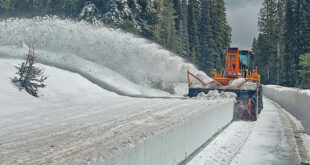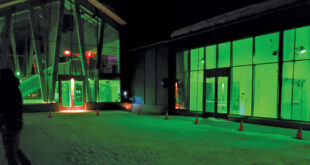{mosloadposition user 1} Testimony was given about the impact the expansion and subsequent mining would have on the roadless area, and on greenhouse gas emissions as they relate to global warming. According to court records, the Bureau of Land Management, one of the agencies involved in the case, alluded to the cost of greenhouse gas emissions being unhelpful, and “placing quantitative values on greenhouse gas emissions is still controversial.” In a 36-page ruling, U.S. District Court Judge R. Brooke Jackson found the decision by the BLM and other agencies to ignore the impact of coal mining on climate change to be neglectful. Jackson rejected the agencies’ approval of Arch Coal’s plans to construct new roads and drilling platforms in the Sunset Roadless Area. The court held that the Forest Service looked at the benefits of expansion to the local economy but ignored the global costs of climate change, stating, “It is arbitrary to offer detailed projections of a project’s upside while omitting a feasible projection of the project’s costs.” “The court ruling will ensure that federal agencies take the hard look that the law requires at environmental harms before bulldozing roads throughout the Sunset roadless area,” said Alli Melton, public lands director for HCCA. “Pristine forests, such as the Sunset roadless area, are part of Colorado’s natural heritage and can’t be replaced. They provide substantial benefit to our local economies. Hunting and angling alone brings in over $1 billion to the Colorado economy. Clean air and clean water are essential necessities for our quality of life and for ensuring the West Elks remain a world-class recreation destination for years to come. Requiring these values and benefits to be considered is another step to ensuring balanced public land management that supports diverse, resilient local economies.” Melton concluded, “This ruling makes certain that coal mines can’t build roads in Colorado’s precious national forest roadless areas unless and until the Forest Service makes an honest account of the huge amounts of climate pollution that such mining may cause.” Nathaniel Shoaff, an attorney for the Sierra Club, told the Boston Globe that Jackson’s ruling could have a far-reaching impact. “This is the first time I’m aware of that a federal court has invalidated a federal agency decision because it didn’t take into account the social cost of carbon,” Shoaff said. He added that if the current administration continues to ignore the impact of coal mining on climate change, “We will start using this decision to force them to do it.” The area Arch Coal had planned to develop provides habitat for the threatened lynx and recreation opportunities for hikers and hunters, and links the West Elk Wilderness Area with lower-elevation forests along the North Fork of the Gunnison River.
Court decision requires agencies to consider climate effects of coal mining
Arch Coal denied approval for expansion near West Elk Wilderness
Developing new coal mines in the United States may have just gotten trickier, thanks to a recent ruling made at a U.S. District Court in Denver.
The case pitted three environmental groups, including local High Country Conservation Advocates (HCCA), against federal and state government land management agencies to determine whether the impact of coal mining on global climate change had been adequately considered. At stake were not only mining company Arch Coal’s plans to expand the operations of its West Elk Mine into a 1,700-acre area within the 5,800-acre Sunset Roadless Area in southwest Colorado, but also the ability of government to manage public lands.
 The Crested Butte News Serving the Gunnison Valley since 1999
The Crested Butte News Serving the Gunnison Valley since 1999



